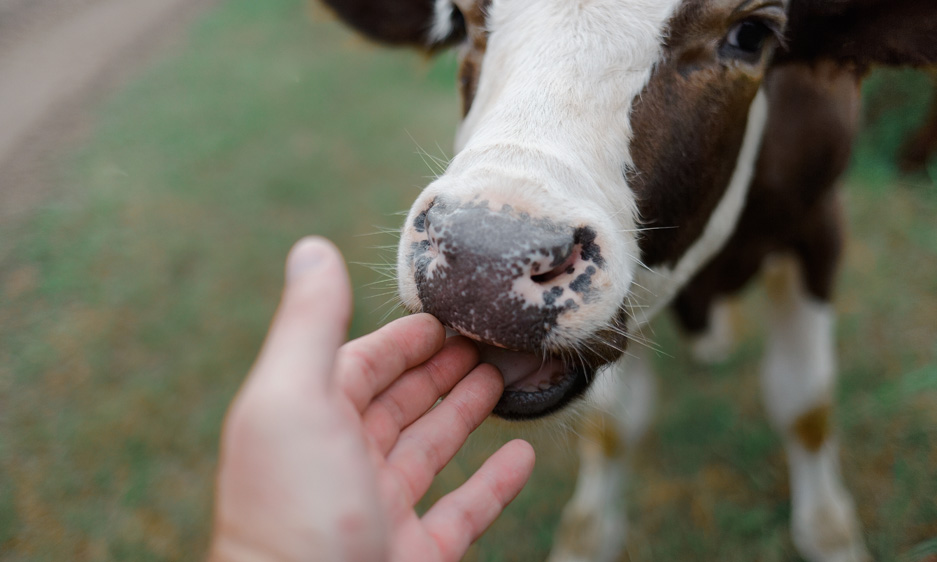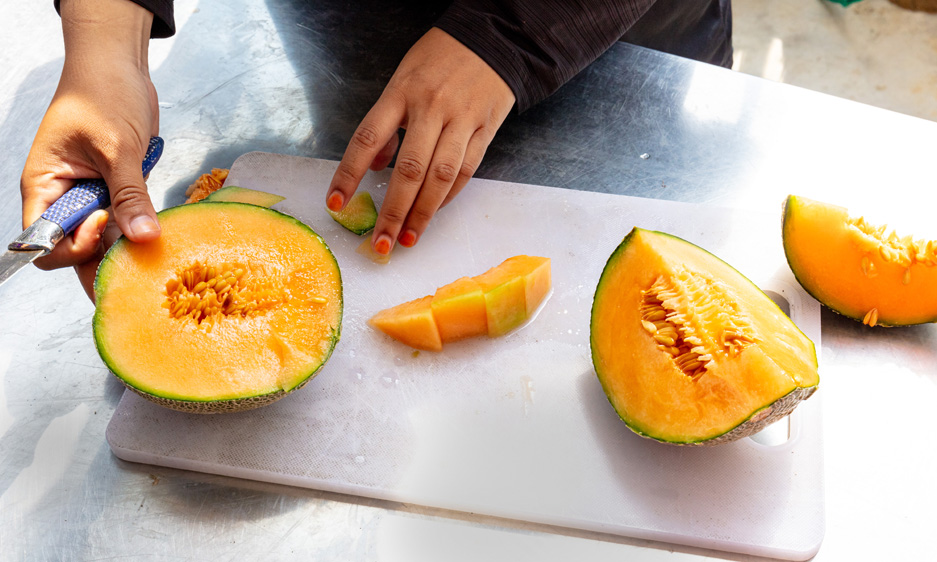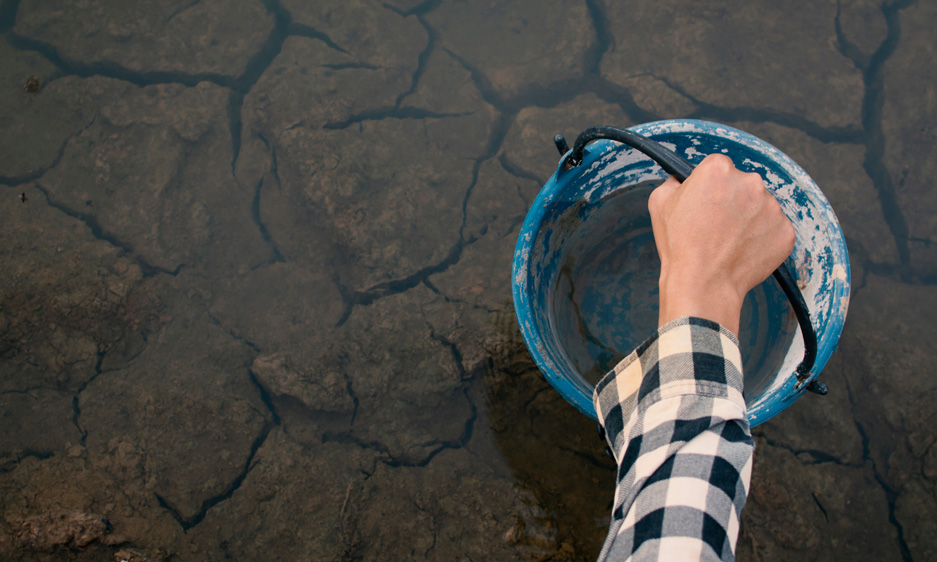AMR is one of humanity’s greatest threats: due to overexposure, bacteria and other disease-causing microbes are developing resistance to the drugs designed to kill them.
There are multiple factors impacting its emergence and spread. Where does it intersect with you?
Human health

Australia has a higher prescribing rate of antimicrobials compared with most European countries and Canada.
Many patients are still given antimicrobials even when there is no evidence of benefit.
Almost 25% of these prescriptions in Australia are either unnecessary or the wrong type of medicine [pdf 7.7mb] for the infection.
Taking antibiotics too often or for the wrong reasons increases the chance of these drugs becoming ineffective.
Agriculture

Global livestock production could decrease by up to 7.5 per cent by 2050 due to antimicrobial resistance.
More severe animal disease outbreaks caused by drug-resistant pathogens leads to higher mortality rates and decreased agricultural productivity.
Companion animals

Antimicrobials are needed in veterinary medicine to treat infections. As with humans, antimicrobial resistance limits the effectiveness of these treatments.
Drug-resistant pathogens can be transmitted between pets and pet owners through contact with an animals’ faeces, urine, or saliva.
Economics

The current cost of absenteeism to the Australian economy is $24 billion annually.
This includes the cost of lost productivity from people who are unable to work due to infectious diseases.
Antibiotic-resistant infections increase the length of long-term sick leave compared with infections that are caused by antibiotic-susceptible bacteria.
The environment

Antimicrobial resistance can spread within the environment in several ways including through water, wastewater, animal manure, and food.
Wastewater [PDF, 1mb]from hospitals and other health facilities contains drug-resistant pathogens and antimicrobial medicines.
Antiseptics and antibacterial ingredients in some detergents and handwash unnecessarily contribute to the amount of antimicrobials and antimicrobial resistance in the environment and are no more effective than regular soaps.
Trade

Australia’s GDP could be five to ten percent lower [PDF · 2.5MB] by 2050 due to antimicrobial resistance. Contributing factors would include a decrease in available labour and reduced supply of resources.
Businesses that rely on complex supply chains spanning multiple countries will need to adapt their trade models and practices in response to increased biosecurity measures and to mitigate the impact of antimicrobial resistance.
Countries importing food may be reluctant to accept products from places with high rates of antimicrobial resistance, which also adversely impacts the exporter.
Tourism

Domestic and foreign travellers can inadvertently serve as carriers of drug-resistant bacteria from one region or country to another, contributing to the global spread of antimicrobial resistance.
As the effectiveness of antimicrobials diminishes, the need for more complex and costly treatment regimens increases.
Antimicrobial resistance also poses a threat to public health as travellers returning to their families may harbour these pathogens.
Food safety

Food may become contaminated with antimicrobial-resistant bacteria at any stage from farm to fork.
If food is not properly prepared or cooked, it can result in a foodborne infection. Foodborne pathogens that carry antimicrobial resistance often cause more serious infections, leading to hospitalisation and even death.
Cancer

In 2020, there were 48,000 deaths attributed to cancer in Australia.
Infections are the second leading cause of death in people with cancer.
Due to antimicrobial resistance, these infections are more complex to treat require more costly antibiotics, and longer hospital stays.
In 2020, the Australian Government allocated a significant investment of $934 million towards cancer research.
Closing the Gap

Antimicrobial resistance affects Australia's remote-living Aboriginal and Torres Strait Islander families at some of the highest reported rates in the country.
Skin and soft tissue, middle ear and urinary tract infections [PDF, 6mb] are highly prevalent in these remote communities with the levels of resistance to treatments continuing to climb.
Fisheries

There is a lack of antimicrobials registered for use in fish and seafood grown in Australia, so there's a focus on vaccination to prevent disease.
Surveillance studies have shown the level of resistance against antimicrobials of human importance in our animal industries, including fisheries, is low or negligible.
As fish live in an aquatic environment, we need to continue to maintain high water quality to promote health and wellbeing.
Climate change

As the climate crisis worsens, millions of people around the world are experiencing the health consequences of extreme weather and climate events such as droughts, floods, and heatwaves.
Heavy rainfall can cause stormwater and sewage system overflows and is a risk to public health. Contaminated flood waters damage crops and impact the health of livestock.
Increased temperatures [PDF, 9.8mb] accelerate bacterial growth rates and the transfer of antibiotic-resistant genes between microorganisms.
AMR is one of humanity’s greatest threats: due to overexposure, bacteria and other disease-causing microbes are developing resistance to the drugs designed to kill them.
There are multiple factors impacting its emergence and spread. Where does it intersect with you?
Human health
Australia has a higher prescribing rate of antimicrobials compared with most European countries and Canada.
Many patients are still given antimicrobials even when there is no evidence of benefit.
Almost 25% of these prescriptions in Australia are either unnecessary or the wrong type of medicine [pdf 7.7mb] for the infection.
Taking antibiotics too often or for the wrong reasons increases the chance of these drugs becoming ineffective.
Agriculture
Global livestock production could decrease by up to 7.5 per cent by 2050 due to antimicrobial resistance.
More severe animal disease outbreaks caused by drug-resistant pathogens leads to higher mortality rates and decreased agricultural productivity.
Companion animals
Antimicrobials are needed in veterinary medicine to treat infections. As with humans, antimicrobial resistance limits the effectiveness of these treatments.
Drug-resistant pathogens can be transmitted between pets and pet owners through contact with an animals’ faeces, urine, or saliva.
Economics
The current cost of absenteeism to the Australian economy is $24 billion annually.
This includes the cost of lost productivity from people who are unable to work due to infectious diseases.
Antibiotic-resistant infections increase the length of long-term sick leave compared with infections that are caused by antibiotic-susceptible bacteria.
The environment
Antimicrobial resistance can spread within the environment in several ways including through water, wastewater, animal manure, and food.
Wastewater [PDF, 1mb]from hospitals and other health facilities contains drug-resistant pathogens and antimicrobial medicines.
Antiseptics and antibacterial ingredients in some detergents and handwash unnecessarily contribute to the amount of antimicrobials and antimicrobial resistance in the environment and are no more effective than regular soaps.
Trade
Australia’s GDP could be five to ten percent lower [PDF · 2.5MB] by 2050 due to antimicrobial resistance. Contributing factors would include a decrease in available labour and reduced supply of resources.
Businesses that rely on complex supply chains spanning multiple countries will need to adapt their trade models and practices in response to increased biosecurity measures and to mitigate the impact of antimicrobial resistance.
Countries importing food may be reluctant to accept products from places with high rates of antimicrobial resistance, which also adversely impacts the exporter.
Tourism
Domestic and foreign travellers can inadvertently serve as carriers of drug-resistant bacteria from one region or country to another, contributing to the global spread of antimicrobial resistance.
As the effectiveness of antimicrobials diminishes, the need for more complex and costly treatment regimens increases.
Antimicrobial resistance also poses a threat to public health as travellers returning to their families may harbour these pathogens.
Food safety
Food may become contaminated with antimicrobial-resistant bacteria at any stage from farm to fork.
If food is not properly prepared or cooked, it can result in a foodborne infection. Foodborne pathogens that carry antimicrobial resistance often cause more serious infections, leading to hospitalisation and even death.
Cancer
In 2020, there were 48,000 deaths attributed to cancer in Australia.
Infections are the second leading cause of death in people with cancer.
Due to antimicrobial resistance, these infections are more complex to treat require more costly antibiotics, and longer hospital stays.
In 2020, the Australian Government allocated a significant investment of $934 million towards cancer research.
Closing the Gap
Antimicrobial resistance affects Australia's remote-living Aboriginal and Torres Strait Islander families at some of the highest reported rates in the country.
Skin and soft tissue, middle ear and urinary tract infections [PDF, 6mb] are highly prevalent in these remote communities with the levels of resistance to treatments continuing to climb.
Fisheries
There is a lack of antimicrobials registered for use in fish and seafood grown in Australia, so there's a focus on vaccination to prevent disease.
Surveillance studies have shown the level of resistance against antimicrobials of human importance in our animal industries, including fisheries, is low or negligible.
As fish live in an aquatic environment, we need to continue to maintain high water quality to promote health and wellbeing.
Climate change
As the climate crisis worsens, millions of people around the world are experiencing the health consequences of extreme weather and climate events such as droughts, floods, and heatwaves.
Heavy rainfall can cause stormwater and sewage system overflows and is a risk to public health. Contaminated flood waters damage crops and impact the health of livestock.
Increased temperatures [PDF, 9.8mb] accelerate bacterial growth rates and the transfer of antibiotic-resistant genes between microorganisms.
